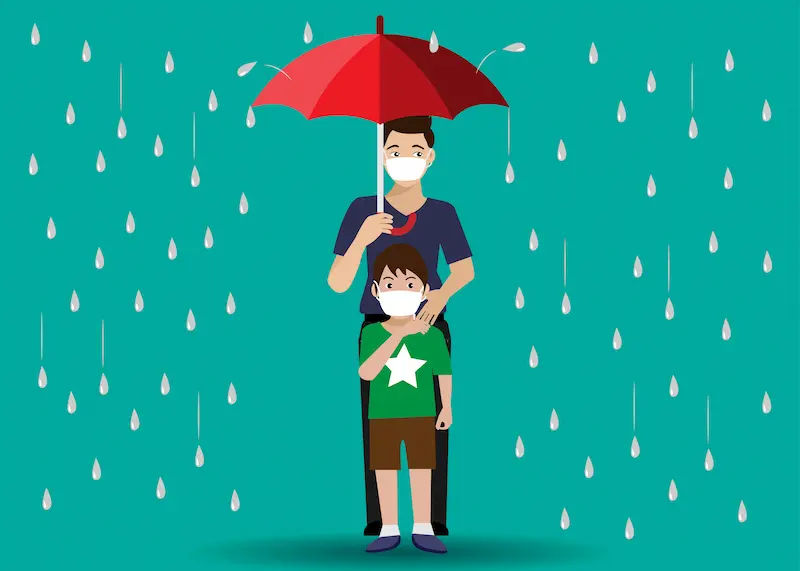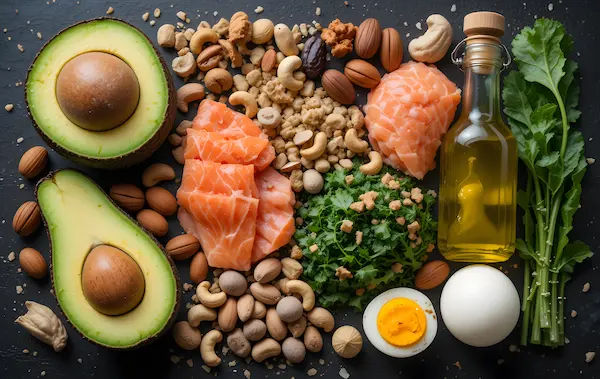Proven Home Remedies to Get Rid of Dandruff Naturally
Discover proven dandruff treatment and scalp care tips. Learn how to use medicated shampoos, gentle routines, and safe natural options to calm flakes fast.

Written by Dr. Siri Nallapu
Reviewed by Dr. Dhankecha Mayank Dineshbhai MBBS
Last updated on 13th Jan, 2026

Introduction
Dandruff is common, frustrating, and often embarrassing—but it’s manageable. With the right dandruff treatment and gentle scalp care, most people can calm flakes and itch at home. This guide explains what actually works, how to use it safely, and when to seek medical help. You’ll find simple steps, evidence-informed natural options, and a practical plan you can start today.
What causes dandruff?
Dandruff is usually a mild form of seborrheic dermatitis. It happens when:
- A natural yeast (Malassezia) on the skin feeds on scalp oils and triggers irritation.
- The scalp’s oil (sebum) and skin barrier change, leading to faster shedding of skin cells.
Inflammation makes flakes and itching worse.
Common triggers include stress, cold/dry weather, oily skin, and certain hair products. Dandruff is not caused by poor hygiene and is not contagious.
A few other conditions can look like dandruff:
- Scalp psoriasis (thicker, silvery scales; often on elbows/knees too)
- Contact dermatitis (reaction to hair products)
- Tinea capitis (fungal scalp infection, more common in children; can cause patchy hair loss)
- If flakes do not improve with over-the-counter care, a clinician can confirm the diagnosis.
First-line dandruff treatment you can do at home
Over-the-counter medicated shampoos are the most effective home option. Look for one of these active ingredients (availability varies by country—check the label):
Ketoconazole 1% (antifungal)
- Selenium sulfide (antifungal; can discolor light or color-treated hair if not rinsed well)
- Salicylic acid (helps lift flakes; follow with conditioner to avoid dryness)
- Coal tar (slows skin turnover; may discolor light hair/scalp; can increase sun sensitivity)
- Pyrithione zinc (antifungal; availability differs by region)
How to use medicated shampoos effectively
- Frequency: Start 2–3 times per week. On other days, use a gentle, fragrance-free shampoo.
- Contact time: Massage into the scalp and leave on for 3–5 minutes before rinsing. This “soak time” is key.
- Coverage: Focus on the scalp, not the hair length.
- Rotation: If one ingredient helps then stops working, switch to a different active and rotate every few weeks.
- Conditioning: Apply conditioner to hair lengths, not the scalp, if you’re prone to oiliness or buildup.
When to expect results?
- Some relief often appears within 1–2 weeks.
- Give a product 3–4 weeks of consistent use before deciding it’s not working.
- If there’s no improvement after 4–6 weeks, talk to a healthcare professional. Prescription options like stronger antifungal shampoos or topical anti-inflammatories may help.
Safety tips
- Protect color-treated or chemically processed hair by rinsing thoroughly after selenium sulfide or coal tar shampoos.
- Coal tar can increase sun sensitivity; use sun protection for the scalp when outdoors.
- If you are pregnant, breastfeeding, or treating a child, ask a clinician which actives are safest for you.
Consult Top Specialists
Gentle scalp care habits that help
Small changes in daily scalp care can make a big difference:
- Wash regularly: Shampoo often enough to control oil—daily or every other day for oily scalps, and less often for dry scalps.
- Rinse well: Residue can irritate the scalp and add to flaking.
- Be gentle: Avoid scratching, vigorous scrubbing, and very hot water.
- Choose simple products: Use fragrance-free, alcohol-free, and non-comedogenic options when possible.
- Limit heavy oils and waxes: Thick pomades and heavy oils can feed Malassezia and worsen flakes for some people.
- Manage stress and sleep: Stress can flare seborrheic dermatitis; good sleep and stress-reduction techniques help.
- Weather-wise care: In dry seasons, consider a humidifier. In warmer months, brief sun exposure may help seborrheic dermatitis, but protect your skin—avoid sunburn and follow sun-safety guidance.
Natural, evidence-informed options (and what to avoid)
Many “natural” remedies are popular, but few have strong research behind them. Here’s what the science and expert guidance suggest:
May help some people
- Tea tree oil (TTO): Shampoos containing around 5% tea tree oil reduced dandruff in a small clinical study. Caution: TTO can cause allergic reactions or irritation. If you try it, use a ready-made shampoo from a reputable brand, patch test first, and stop if irritation occurs.
- Aloe vera: Limited studies suggest aloe may calm inflammation and itch in seborrheic dermatitis.
- Choose a simple, alcohol-free gel and patch test.
- Emollients for comfort: Light moisturizers (for example, a few drops of mineral oil or a non-fragrant conditioner on the scalp before washing) can loosen scales. Avoid prolonged, heavy oiling, which can worsen yeast growth for some people.
Approaches with limited or mixed evidence
- Probiotics and diet changes: Early research is mixed. A generally balanced diet that supports overall skin health is reasonable, but no specific diet has been proven to “cure” dandruff.
Best avoided or used with caution
- Apple cider vinegar (ACV): Popular online, but there’s no solid evidence it treats dandruff.
- Undiluted ACV can irritate or burn the skin. If you choose to try it, dilute heavily (for example, 1 teaspoon in a cup of water), avoid broken skin, and stop if stinging occurs.
- Baking soda or harsh scrubs: Can disrupt the scalp barrier and cause more irritation.
- Undiluted essential oils: High risk of irritation; avoid applying directly to the scalp.
Bottom line: Natural options may offer mild relief for some people, but medicated dandruff treatment shampoos remain the most reliable at-home choice.
A simple 2-week plan to calm flakes
Day 1–14
Choose one medicated shampoo (ketoconazole, selenium sulfide, salicylic acid, coal tar, or pyrithione zinc, where available).
Use it 3 times per week:
- Massage into the scalp, leave for 3–5 minutes, and rinse well.
- On off-days, use a gentle, fragrance-free shampoo.
- After washing, use conditioner on hair lengths only.
- Style with lighter products; avoid heavy oils/waxes.
- Brush or comb gently daily to lift loose flakes.
- Change pillowcases and hat liners regularly.
- Track triggers: note stress, weather changes, or new hair products.
If improved by week 2: Keep the same routine. If not: Switch to a different active ingredient for the next 2–4 weeks. See a clinician if there’s still little progress after 4–6 weeks.
When to see a healthcare professional?
Get medical advice if you notice:
- Severe redness, swelling, or pain
- Yellow crusts, oozing, or signs of infection
- Patchy hair loss, broken hairs, or black dots on the scalp (possible fungal infection)
- Thick plaques that don’t flake off with shampooing
- Dandruff starting in infancy (cradle cap) that persists or concerns you
- No improvement after consistent use of medicated shampoos for 4–6 weeks
A clinician can confirm the diagnosis, rule out psoriasis or tinea capitis, and prescribe treatments such as stronger antifungal shampoos or topical anti-inflammatories when needed.
Common myths and facts
- Myth: Dandruff means your scalp is dirty.
Fact: It’s usually about yeast, oil, and skin sensitivity—not cleanliness. - Myth: Daily shampooing is bad for dandruff.
Fact: Regular washing often helps. Use gentle products and medicated shampoos as directed. - Myth: It’s contagious.
Fact: Dandruff does not spread from person to person. - Myth: Oils cure dandruff.
Fact: Heavy oils can sometimes worsen flakes. Choose treatments with proven antifungal or keratolytic ingredients. - Myth: Shaving your head cures dandruff.
Fact: Removing hair may make flakes less visible, but it doesn’t treat the underlying scalp condition.
Consult Top Specialists
Consult Top Specialists

Ms. Samapti Maity
Dietician
16 Years • MSc. (Clinical Nutrition & Dietitics), NDEP, Course in Maternal Infant Young Child Nutrition.Diploma in Sports Nutrition, Diploma in Diabetic educator, FODMAP Specialist
Kolkata
BIENETRE CLINIC, Kolkata

Ms. Malabika Datta
Dietician
17 Years • Msc. in Dietetics & Food Service Management
Kolkata
Dr Utsa Basu Clinic, Kolkata
(25+ Patients)

Ms. Soma Saha
clinical nutrition
17 Years • B.Sc. - Home Science (Food & Nutrition), M.Sc. - Home Science (Food & Nutrition)
Kolkata
Dr Utsa Basu Clinic, Kolkata
(50+ Patients)

Ms Suchanda Guha
Dietician
10 Years • M.Sc (Applied Nutrition), B.Sc (Food & Nutrition), Diploma (Yogic Nutrition)
Kolkata
NutriKutir, Kolkata

Ms Divya Gandhi
Dietician
10 Years • Diploma in Nutrition and Dietetics
Delhi
Diet and Cure, Delhi
(325+ Patients)
Consult Top Specialists

Ms. Samapti Maity
Dietician
16 Years • MSc. (Clinical Nutrition & Dietitics), NDEP, Course in Maternal Infant Young Child Nutrition.Diploma in Sports Nutrition, Diploma in Diabetic educator, FODMAP Specialist
Kolkata
BIENETRE CLINIC, Kolkata

Ms. Malabika Datta
Dietician
17 Years • Msc. in Dietetics & Food Service Management
Kolkata
Dr Utsa Basu Clinic, Kolkata
(25+ Patients)

Ms. Soma Saha
clinical nutrition
17 Years • B.Sc. - Home Science (Food & Nutrition), M.Sc. - Home Science (Food & Nutrition)
Kolkata
Dr Utsa Basu Clinic, Kolkata
(50+ Patients)

Ms Suchanda Guha
Dietician
10 Years • M.Sc (Applied Nutrition), B.Sc (Food & Nutrition), Diploma (Yogic Nutrition)
Kolkata
NutriKutir, Kolkata

Ms Divya Gandhi
Dietician
10 Years • Diploma in Nutrition and Dietetics
Delhi
Diet and Cure, Delhi
(325+ Patients)
More articles from General Medical Consultation
Frequently Asked Questions
Is dandruff contagious?
No. Dandruff is not an infection you can “catch.” It’s linked to your scalp’s oil, a common yeast, and skin sensitivity.
How often should I wash my hair if I have dandruff?
Wash as often as needed to control oil and flakes—daily or every other day for many people. Use a medicated shampoo 2–3 times weekly and a gentle shampoo on off-days.
Can dandruff cause hair loss?
Dandruff doesn’t usually cause permanent hair loss. However, inflammation and scratching can shed hairs temporarily. If you notice patchy hair loss or broken hairs, see a clinician to rule out other conditions.
Are natural oils good or bad for dandruff?
It depends. Light, brief use can loosen scales, but heavy oils may worsen flakes because the yeast that contributes to dandruff feeds on oils. If you try oils, use sparingly and see how your scalp responds.
What’s the difference between dry scalp and dandruff?
Dry scalp sheds small, dry flakes and often feels tight. Dandruff tends to produce larger, greasy or yellowish flakes with itch, due to yeast and oil interacting with the scalp. Medicated shampoos usually help dandruff more than simple dryness.




